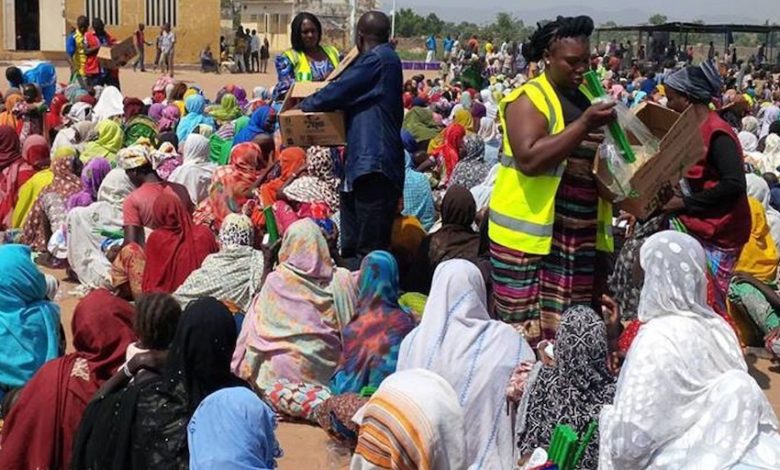Northeast Needs Urgent Humanitarian Aid With Worsening Situation – UN, Others

The humanitarian community says increased violent attacks and the COVID-19 pandemic have worsened access to aid for vulnerable populations in Northeast Nigeria.
During a high level online briefing on Thursday, Mr Edward Kallon, the UN Resident and Humanitarian Coordinator in Nigeria, stated that the number of those in need had risen greatly, with living conditions and security significantly reduced since the year began.
Kallon alongside Hajiya Sadiya Umar Farouq, Nigeria’s Minister of Humanitarian Affairs, Disaster Management and Social
Development, and Borno State Governor, Prof. Babagana Zulum, as well as other UN and NGO representatives participated in the briefing.
They said that the COVID-19 pandemic had worsened the situation in Borno, Yobe and Adamawa states, where insecurity had had most effect.
“The number of people needing humanitarian assistance is the highest ever recorded in five years of a joint humanitarian response.
“The COVID-19 pandemic is affecting us all. Its devastating effects will distress Nigeria’s most fragile region. Unless we take immediate action, we should prepare for a spike in conflict, hunger and destitution in northeast Nigeria,” Kallon said.
Over 10.6 million out of 13 million will need some sort of aid this year, a 50 per cent increase since 2019, which is as an indirect result of the coronavirus pandemic.
Paul Howe, the Representative and Country Director of the World Food Programme,
said the people were battling with severe hunger and remained most at risk of suffering from the fallout of COVID-19.
“They are on life support and need assistance to survive,” Howe said
Although the humanitarian agencies are providing food assistance to over 2.5 million people, the situation has worsened over the past three years, where only a few years ago, famine in the region was averted.
“Now, up to 4.3 million people could face hunger,” Howe said.
Ambassador Ahmed Shehu, Chairman of the Northeast Civil Society Forum, explained that accessing communities had become increasing more difficult too, even for the national organisation providing aid.
“Many of our colleagues have lost their lives in the service to humanity. We are urging the international community to support the Northeast.
“It is important we all come together to provide assistance to people in need and work even closer together, especially with local actors,” he said.
“Needs are increasing and our work has become ever more challenging,” added Charles Usie, Country Director of Christian Aid, representing international NGOs.
“Since late 2019, there are almost no roads in Borno and Yobe states that humanitarians can travel on.
“With the upsurge in violent attacks by non-state armed groups, humanitarian workers and the aid they deliver are increasingly at risk,” Usie said.
The UN and partner NGOs require 1.08 billion dollars to provide urgent aid to 7.8 million people who are amongst the most vulnerable, as HumAngle previously reported.
“With only five months left until the end of the year, aid organisations have received less than a third of the required amount, amounting to less than 30 cents for each person in need for the whole year.
“We know that many of our donors are facing extraordinary economic and social challenges at home as a result of the pandemic that will require vast resources,” Kallon explained.
“Now is the time for all of us to step up for the most vulnerable and demonstrate
our solidarity amid the greatest global challenge of our times.
“Since 2015, UN agencies and international NGOs have been working in Northeast Nigeria in coordination with the government, to provide life-saving assistance to those affected by the crisis that has ravaged entire communities in Borno, Adamawa and Yobe states,” he said
Humanitarian agencies supported more than 5.2 million people in 2019, with over four million getting emergency health treatment, and another 2.4 million getting food assistance.
Aid workers also successfully saved the lives of 650 children daily from severe acute malnutrition.
Support Our Journalism
There are millions of ordinary people affected by conflict in Africa whose stories are missing in the mainstream media. HumAngle is determined to tell those challenging and under-reported stories, hoping that the people impacted by these conflicts will find the safety and security they deserve.
To ensure that we continue to provide public service coverage, we have a small favour to ask you. We want you to be part of our journalistic endeavour by contributing a token to us.
Your donation will further promote a robust, free, and independent media.
Donate HereStay Closer To The Stories That Matter




